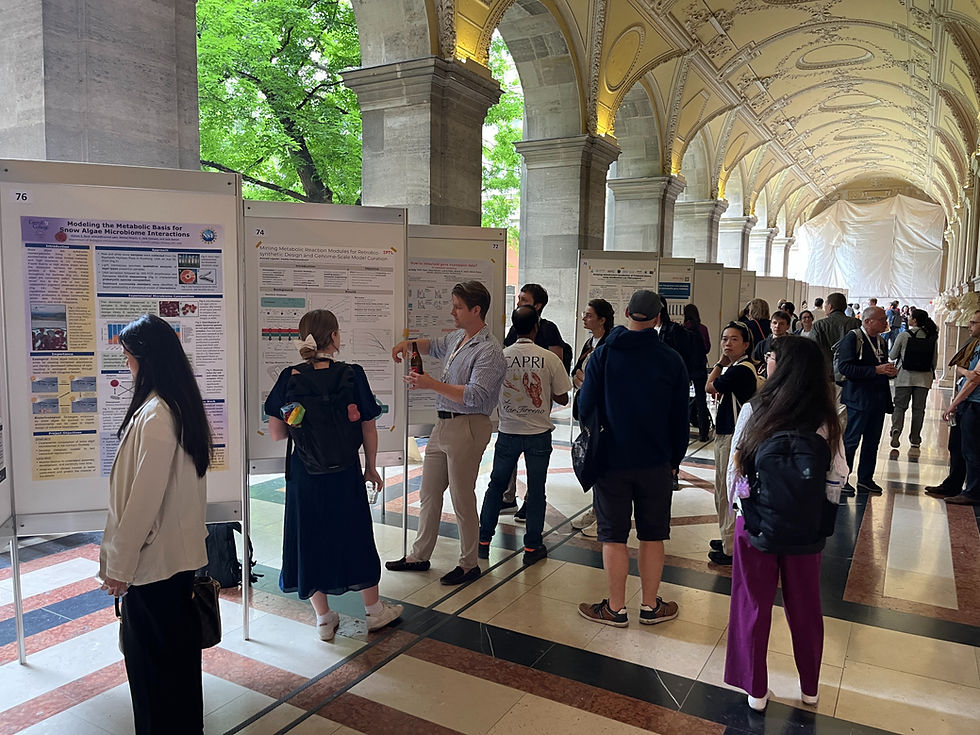Short-term scientific mission within the FULLRECO4US
- Raimonda Soloha
- Jun 29, 2022
- 3 min read
Our colleague Raimonda Soloha spent 2 weeks (May 29 – June 11, 2022) at the Norwegian University of Life Sciences (NMBU), Faculty of Science and Technology, The Reaction Engineering and Catalysis Group. The exchange visit was hosted by Professor Dr Jorge Mario Marchetti. The short-term scientific mission (STSM) was awarded by the EU COST Action CA20133 “Cross-border transfer and development of sustainable resource recovery strategies towards zero waste (FULLRECO4US)”.

The overall aim of the exchange visit at the NMBU was to get an overview of research at the host institution, initialize international cooperation and foster knowledge exchange. The specific aim of the STSM was to support the investigation of which waste feedstocks are relevant for the recovery of added value products in 8 selected countries in the Northern European region (Denmark, Estonia, Finland, Iceland, Latvia, Lithuania, Norway, Sweden) by developing a database design suitable for collecting quantitative and qualitative data on the availability of waste feedstocks (by-products) and resource recovery (valorisation) potential. We also aimed to support the objectives of FULLRECO4US by summarising state-of-the-art waste resource recovery techniques, identifying knowledge gaps, and enhancing cross-border cooperation.
Raimonda’s reflection on her research exchange:
“During the exchange visit, we discussed the idea, design and data structure of the database for identifying waste feedstocks (by-products) and their valorisation potential. We also discussed specifics of chemical conversion and data to be included in the database to represent the chemical conversion process as fully as possible. In addition to that, we discussed what economic factors could be added to the database. Jorge presented how he applies techno-economic assessment in his research. Based on the discussion we continued the work to improve the structure and content of the database.
We also gained valuable insights on how data mining can be used to find relevant scientific literature and extract valuable data from scientific articles based on keywords. Rule-based algorithms and machine learning approaches were presented to us. Such a method would make it easier and faster to find and summarize the information. However, there are still challenges in how to find the necessary information by applying data mining approaches. For example, relevant articles could fall within the irrelevant category, the same parameter can be named differently in different publications etc. Nevertheless, this approach seems promising as the number of scientific literature and data keeps increasing.
I would like to thank the COST Action CA20133 “Cross-border transfer and development of sustainable resource recovery strategies towards zero waste (FULLRECO4US)” for approving and funding the research exchange. Sincere thanks to Dr Jorge Mario Marchetti for the warm welcome in Norway and my PhD supervisor Dr.sc.ing. Elina Dace for the continuous encouragement and support along my research journey.
This was my first research exchange abroad since the pandemic started, so I appreciate this opportunity. It is always great to broaden knowledge and experience different research environments. I look forward to continuing cooperation with Dr Jorge Mario Marchetti.
Huge thanks to Elina Dace, Karina Balina and Liva Kristiana Lukasa for their contribution to the creation of the database.”
While in Norway, Raimonda also took the opportunity to attend an event in Oslo on June 10, 2022: “Limits to Growth +50: Can economies keep growing indefinitely on a finite planet?”. The event was hosted by the NMBU. Keynote presentation was given by professor emeritus Jørgen Randers who is also one of the co-authors of the 1972 report “The Limits to Growth”. The presentation was followed by a compelling panel discussion with diverse argumentation on tackling social, ecological, and economic challenges. The recording of the event is available here: https://www.youtube.com/watch?v=8xIOw1WadzM.
COST (European Cooperation in Science and Technology) is a funding agency for research and innovation networks. COST Actions help connect research initiatives across Europe and enable scientists to grow their ideas by sharing them with their peers. This boosts their research, career and innovation.
https://www.cost.eu/




















Comments